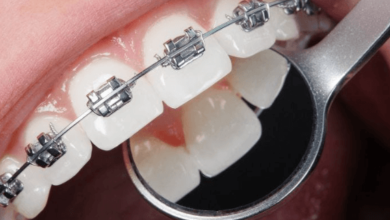Mental Health Assessments

Mental health assessments are essential for identifying and treating mental disorders. These evaluations provide a clearer picture of an individual’s emotional state, their abilities, and their social life.
These evaluations include interviews, written tests, and standardized questionnaires. They are based on best practices and follow professional guidelines. They also take comorbidity and complexity into account.
What is a mental health assessment?
A mental health assessment is an examination of how you think, act, and remember (also known as cognitive functioning). It can be done by a general practitioner or other medical professionals such as nurses, psychologists or psychiatrists.
A healthcare professional will use standardized tools to assess your mental state, such as the mini-mental state examination (MMSE). They may also ask you questions about how you feel and look and what has been going on in your life.
They may ask about your family history, such as if you have any siblings with mental illness or whether anyone close to you has died of depression or Alzheimer’s disease. They will also want to know if you have any previous psychological treatment or whether you’ve been taking drugs or alcohol.
Nurses caring for patients in hospitals often include a mental status exam as part of their overall physical assessment. This includes observing the patient’s level of awareness and responsiveness, appearance and activity, motor and speech, mood and emotion, thought and perception and the reaction they evoke in the examiner.
How is a mental health assessment done?
Mental health assessments can be done by a doctor, nurse, social worker, psychologist, specialist pharmacist or psychiatrist. They can take place in person or over the phone.
A mental health assessment gives doctors a picture of how you feel, think, reason, and remember (cognitive functioning). It also looks at whether you are at risk of hurting yourself or others. A mental health assessment for a child will be tailored to the child’s age and stage of development.
Mental health providers assess a patient’s mood by listening throughout the interview and asking direct questions. They also assess a patient’s thought content by determining if they have delusions, which include firmly held false beliefs that are not part of a person’s cultural belief system and persist despite objective contradictory evidence. They may have hallucinations, which are false sensory perceptions that are not real stimuli, such as visual (seen), auditory (heard), olfactory (smelled), or tactile (felt) sensations. Lastly, they will look at how a patient can pay attention and concentrate.
Read also 9 Tips for Choosing the Right Plastic Trays
What are the results of a mental health assessment?
During the assessment, your doctor will ask you questions about how you’re feeling and what problems you have. It’s important to answer these questions truthfully and accurately. Your doctor will also do a physical exam and ask you about any drugs or supplements you take. This will help them exclude other medical problems that could cause the symptoms you’re experiencing, such as thyroid disease or neurological diseases like Alzheimer’s.
A mental health assessment may also include tests of your ability to think clearly, remember things, and use mental reasoning. These tests are called cognitive evaluations. There are standardized tests that can be used to assess specific conditions, such as depression. You may also be given questionnaires to complete, such as the Beck Anxiety Inventory. The results of the assessment will tell your doctor how severe your symptoms are and what kind of treatment is needed. Your doctor will then decide if you need to be treated in an inpatient or outpatient setting.
What are the benefits of a mental health assessment?
Getting a mental health assessment allows you to get a clear picture of your emotional state and how it impacts your everyday life. It also gives doctors a better understanding of your symptoms and how they relate to other conditions such as Alzheimer’s disease.
Traditional assessments typically include a variety of questionnaires and interviews that help clinicians collect information about your thoughts, feelings, and behaviors. These tools use standardized scoring methods to provide an objective framework for diagnosing your mental health.
However, the way in which these tools are used can affect their accuracy. For instance, the Western model of mental illness tends to overlook broader cultural and social factors that may influence a person’s symptoms and overall functioning. To minimize these limitations, therapists should always follow best practices when using cutting-edge assessment tools. This includes training on the tools’ administration, scoring, and interpretation procedures. It’s also important to prioritize client confidentiality and privacy when using these tools.




